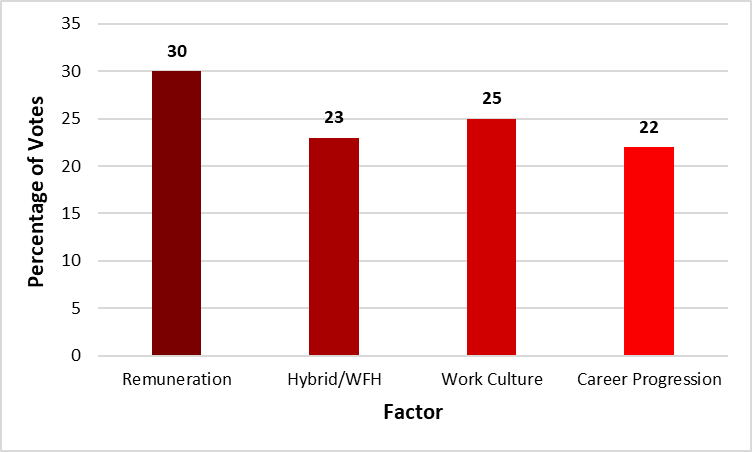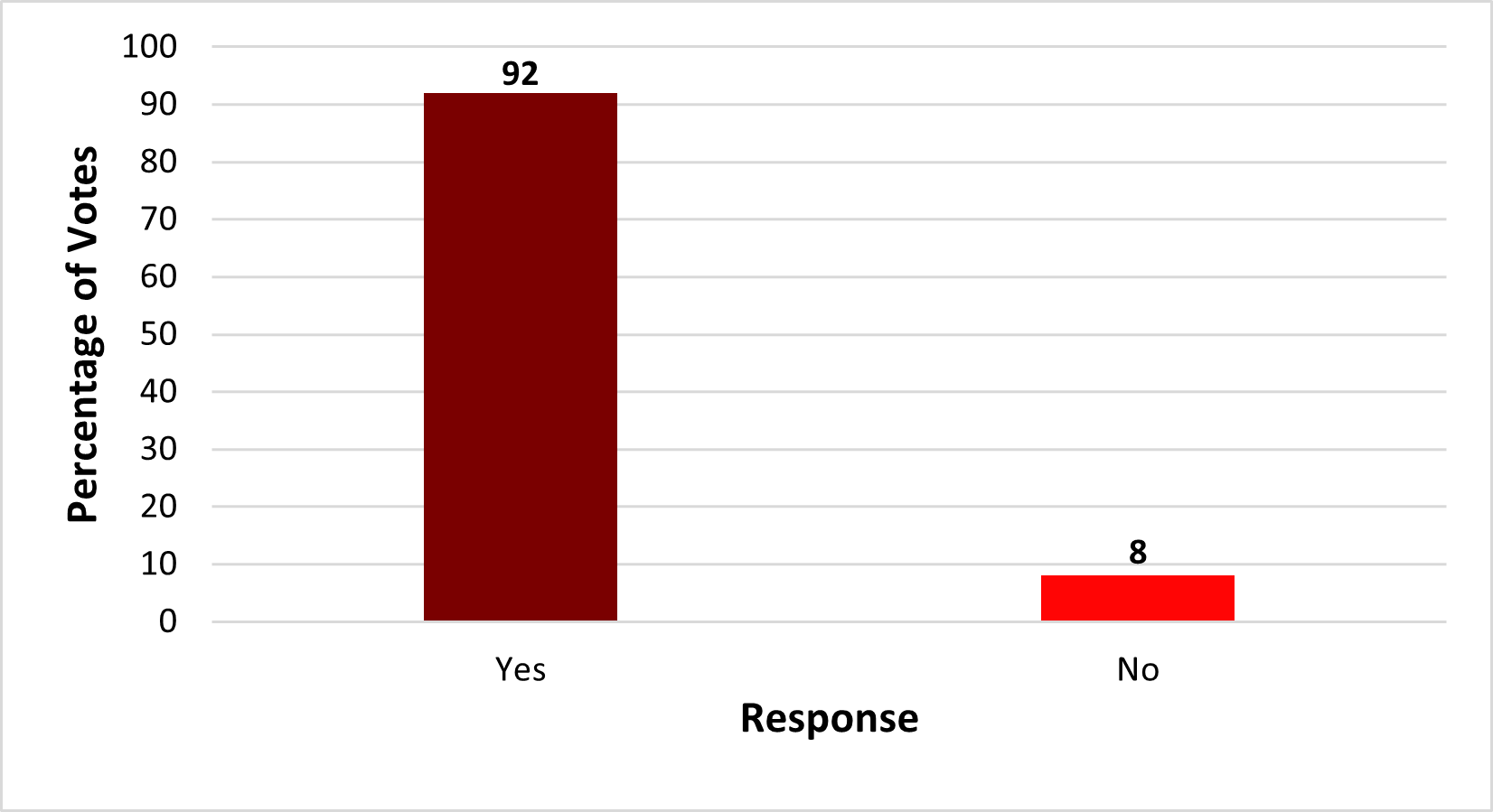Drop off your CV
Lorem ipsum dolor sit amet, consectetur adipiscing elit. Aliquam gravida odio at semper semper or get in touch
A candidate’s decision upon accepting a new job is affected by a combination of key factors,...

A candidate’s decision upon accepting a new job is affected by a combination of key factors, not limited to salary, location, flexibility, and career progression. Highlighting these will help not only hirers to increase the chance of success in job acceptance whilst reducing that of counteroffers, but also candidates to make an informed choice.
We have conducted candidate and client interviews and LinkedIn polls from our network to understand which key factors drive their job considerations.
Which factor(s) is most important to you when considering a new job?

Remuneration
‘Remuneration’ is the most important driving factor for job acceptance. Owing to the current cost of living crisis and inflation, coupled with a skills shortage as a result of Brexit, candidates are requesting salaries that exceed the typical 5-10% increase expected when you move roles. Candidates will engage in negotiation of remuneration both prior to, and post offer delivery, accompanied by an increase in counter-offers made by current employers.
Hybrid Working
In a post-COVID world, work-life balance and job satisfaction have taken precedence in a period where people are more protective of family time. Hybrid/remote working has become an expected part of jobs across the industry.
Job Security
We expect job security to become an even more important factor throughout 2023 with the current cost of living crisis across the UK, inflation, and interest rates, and in increasing number of global conflicts.
In summary, none of these factors can be considered in isolation and careful consideration must apply to each variable in a candidate’s decision to accept a new job offer and when a hirer is recruiting for a new position.
Do you evaluate ‘Quality Culture’ within an organisation when accepting a new job?

An organisation’s approach to Quality is a big driving factor for Pharma candidates; only 8% of voters do not consider ‘Quality Culture’ during job acceptance. ‘Quality Culture’, which can be affected by lack of management and communication, is directly linked to staff retention, turnover, work stress and redundancies. The better the reputation for approach to quality, the more trust the candidate can place into the company and their next role.
"The Quality Culture of an organisation is important, not only from a Regulatory point of view but for the simple reason that it is a lot easier to maintain a good reputation for Quality than it is to lose it and attempt to regain it" – QP Consultant (former Quality Director, biopharmaceutical dosage forms)
How can you, as the hirer, increase your chance of success in job acceptance?
A competitive offer
Time to hire, cost of hiring and reduced offer acceptance rate all encourages current employers to make counter offers to retain their staff upon resignation. They are also reasons why you, as the new hirer, need to deliver a competitive offer including structured hybrid working arrangement (where applicable), competitive remuneration, and job security as basic foundations to engage the candidate upon offer delivery.
Engaging candidates
To secure an engaged candidate, it is highly recommended to portray future growth plans and where they could fit into the business growth, coupled with a good speed to hire. This gives the best chance to secure engaged and high calibre candidates, as described by job seekers themselves as well.
“Timely communication and feedback from interviewers are a good indicator of a positive culture of respect and accountability. For me, these are important values and would make me more likely to accept a job offer.” – QA Manager (from a Global Blue Chip Company)
Site visits
We highly recommend that, should the recruitment process permit, you make the most of site visits as one of the interview stages. Familiarisation with an organisation’s working culture can facilitate a positive outcome for the hiring company as a site-based interview will separate the candidates who are genuinely interested in joining your business, with the ones open but not the most committed.
“I personally think on site interviews are important because it's hard to gauge people's personalities through video. It helps both perspective employers and employees work out whether the team they would be joining is the correct fit for them.” – QA Professional (from a pharmaceutical CDMO)
Summary
In summary, a combination of factors drives a candidate’s consideration when accepting a new job, and attracting high calibre candidates in this competitive market requires all expectations to be met. All of the above will ensure proactive management of counteroffers and increase the likelihood of your desired candidate accepting your job offer.
Walker Cole International ensures that alongside successful placements, we consult alongside our clients to place both the overall recruitment process and candidate experience at the forefront. We work in partnership to optimise securing the best talent with the best chance of success. Should you be looking to discuss new methods to attract and retain talent, please do get in touch with us.